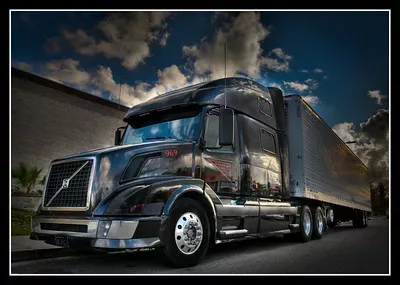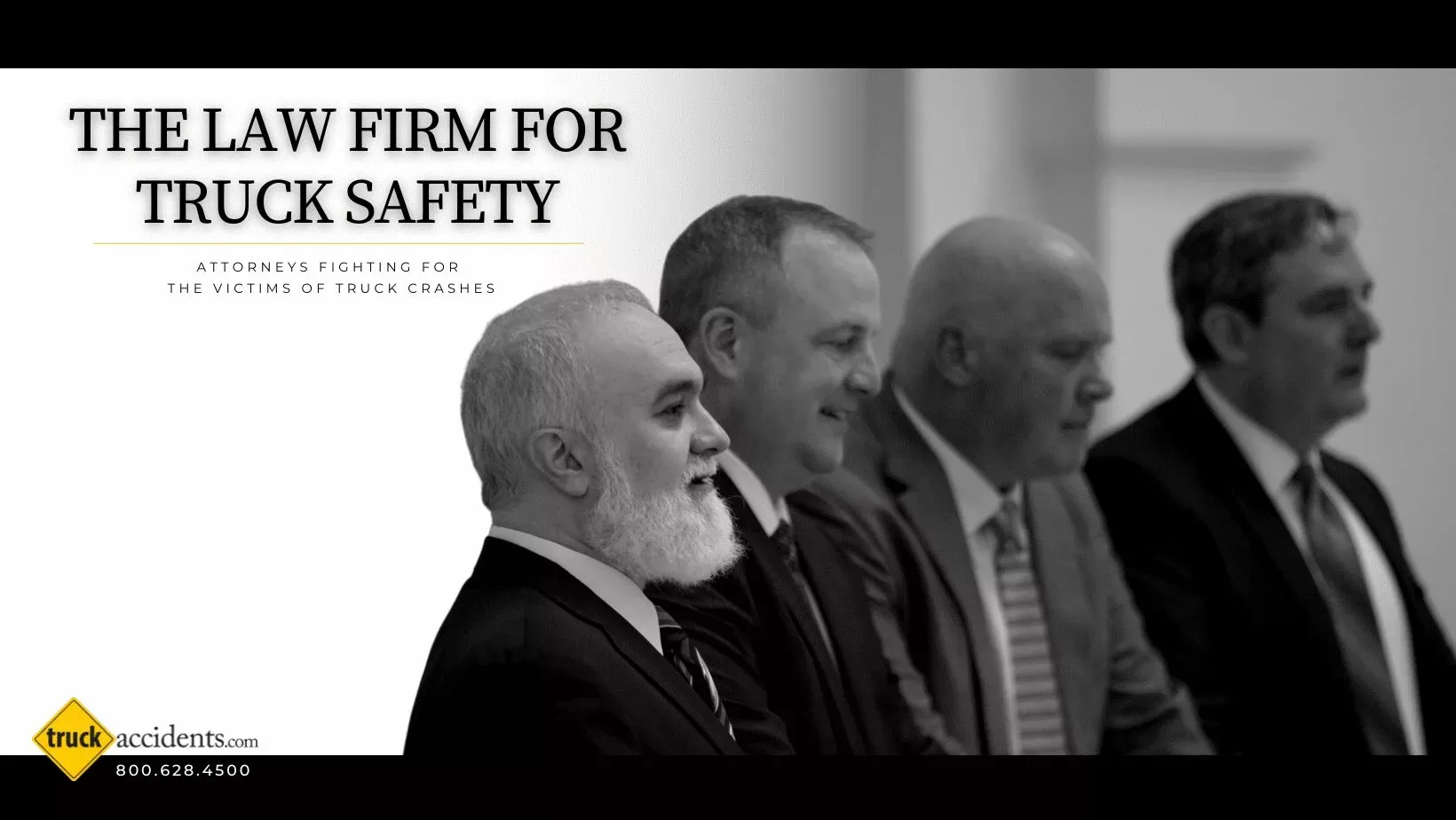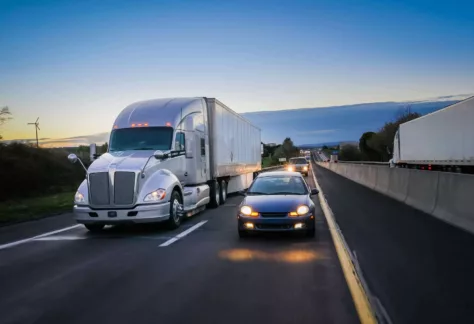Driving next to an 18-wheeler can be a bit intimidating—not to mention even frightening. After all, semis are generally five times the size of a car, pickup truck or SUV and up to 20 times or more the weight. Because of their massive sizes and heavy weights, trucks have the ability to cause serious damage and death if involved in an accident. Here’s a look at some of the stats:
- Fatal tractor trailer accidents cost Americans more than $20 billion each year, $13.1 billion of which is the cost associated with loss of quality of life
- For every 100 million miles driven on U.S. road ways, there are 2.3 deaths and 60.5 injuries caused by big rigs.
Sharing the road with a big rig doesn’t have to be a nightmare, though. There are things you can do to make it easier on yourself and the semi driver next to you.

Courtesy: Vladimir Dostalek via Flickr
Sharing the road with a big rig doesn’t have to be a nightmare, though. There are things you can do to make it easier on yourself and the semi driver next to you.
- TAKE NO CHANCES When a truck’s about to move into your lane, your first instinct might be to speed up and cut the vehicle off so you don’t get stuck behind it. But this type of move puts you in danger. A truck can’t stop as fast as your car, so if you suddenly cut in front of a truck and then hit the brakes, you’re asking for a serious accident.
- PASS WITH CARE Many car drivers assume that truckers can see them at all times. After all, rigs are big and cars are small. That smallness, however, can leave you outside the trucker’s range of vision and put you both at risk.
- AVOID CUTTING OFF A SEMI Don’t try to sneak into a small gap in traffic ahead of a truck or get in front of a truck and then brake to make a turn. Trucks take as much as three times the distance to stop as the average passenger car, and you’re only risking your own life by cutting a truck off and then slowing down in front of it.
- BE PATIENT WITH REVERSING TRUCKS It takes a lot of time and concentration for a truck driver to back up a 48-foot trailer without hitting anyone or anything. Often times, it takes a few attempts to safely reverse a truck. Just stay calm and allow the truck driver to do his/her job.
- NEVER TAILGATE Because truck drivers sit much higher than the normal passenger car, they see things before you do. Stay back at least 100 feet or more, in case the truck driver has to brake suddenly, so you can react in time to avoid rear-ending the truck. In addition, debris from a blown-out tire is less likely to smash through your windshield.
The cases that I handle are catastrophic cases in which the truck driver is at fault, so I see a disproportionate amount of bad drivers. Most truck-car collisions are the fault of the car driver. It is important for “4 wheelers” (which is what truck drivers call cars, pickups and SUVs) and large trucks to have a mutual respect for each other. This includes 4 wheel drivers understanding that the stopping distance and maneuverability of tractor trailers and other large trucks is much different than cars.
Referrals & Co-Counsel
Involved in a Crash?
No other law firm knows trucks quite like us. Our trucking law expertise and trial experience allow us to win multi-million-dollar results year after year.
Our team of truck accident attorneys works tirelessly to help your family find justice in the wake of a catastrophic truck crash.
Referrals & Co-Counsel
No other law firm knows trucks quite like us. Our trucking law expertise and trial experience allow us to win multi-million-dollar results year after year.
Involved in a Crash?
Our team of truck accident attorneys works tirelessly to help your family find justice in the wake of a catastrophic truck crash.
If you have ever lost a loved one or have been the victim of a trucking accident, we may be able to help. It is our job to ensure that truck drivers, trucking companies and any other liable partyA participant in a lawsuit. In a civil lawsuit, the party who sues is the plaintiff and the party being sued is the defendant. are held accountable for their actions. Call us today at (800) 628-4500 for a free consultation.


